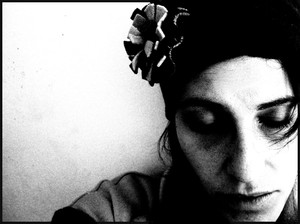For many women, the joy of a new baby gets quickly replaced by feelings of depression. Up to 80% of women experience very minor symptoms of depression during the first days after birth, known as "the baby blues" but as many as 15% may develop a more serious and lasting depression, known as postpartum depression. In rare cases, giving birth can trigger a psychotic disorder, known as postpartum psychosis.
Postpartum Depression
While the baby blues, characterized by feelings of anxiety, sadness and vulnerability, as well as joyful mood swings and weeping is a common phenomenon, lasting only a few days after delivery, an unfortunate percentage of new moms suffer a far more serious condition, postpartum depression.
Postpartum depression can begin soon after childbirth, but it can also begin as long as 6 months after birth. Symptoms may be severe and can include thoughts of self harm or harming the baby. Symptoms do not necessarily get better in time without treatment.
Symptoms of postpartum depression include:
- Feeling sad or hopeless
- Weeping spells, without cause
- Loss of interest in things that used to bring enjoyment
- Sleeping problems, either insomnia or oversleeping
- Weight loss or weight gain, without explanation
- A lack of interest in the baby
- Feelings of worthlessness
- Fatigue or lethargy
- Unexplained headaches or stomach pains
- Having difficulty concentrating, remembering or making decisions
- Thoughts of self harm or harming the baby
Anyone experiencing symptoms of postpartum depression for more than 2 weeks should talk to a doctor about the problem. Anyone having serious thoughts of harming herself or her baby should get immediate, emergency help.
What Causes Postpartum Depression?
Researchers don't yet know what causes postpartum depression. Many scientists believe that hormonal fluctuations occurring around childbirth may trigger the disorder.
Other factors that may play a role in the disorder include:
- The realities of motherhood not meeting expectations
- A difficult or colicky baby
- Difficulty caring for other children
- Fatigue and stress
- Low levels of social support
- Feeling unattractive
- A loss of a sense of identity
- Financial problems
- Youth
- Others
Most likely, biological, emotional and social factors interact to trigger the depression.
Are Some Women More Vulnerable?
Some women are more at risk of the disorder. Factors that increase your risk of postpartum depression include:
- Previous depression
- Previous postpartum depression
- Severe stress during pregnancy or after childbirth (a death in the family, serious illness, etc.)
- Low social support, difficult marriage/relationship with the father
- Strong premenstrual symptoms
Women who have experienced a prior postpartum depression have a 10% - 35% chance of a reoccurrence, and should speak to a doctor prior to childbirth about the situation.
Additional factors correlated to an increased probability of postpartum depression include obstetric complications, a history of 2 or more abortions and taking a higher than average number of sick days during pregnancy.
Postpartum Depression Treatment
Counseling and medication are the 2 most commonly offered therapies for postpartum depression. These therapies may be given in isolation or combined. Certain antidepressant medications may influence your ability to breastfeed.
Working out some of the issues of childrearing and the new family dynamic with a therapist can help a lot. In many cases, by working together with a therapist you can learn better coping and problem solving strategies, as well as gain some perspective on your situation.
A newer form of therapy for postpartum depression, estrogen therapy, which seeks to stabilize hormonal levels in an effort to reduce depressive symptoms, remains largely untested, but may prove effective and may be an option worth discussing with your doctor.
Dealing with the Depression - While You Deal with a New Baby!
Postpartum depression is no one's fault. It's a difficult disorder that is overcome with time and treatment. No one should try to soldier through a bout of depression. Talking to your doctor about the problem can lead quickly to treatments that will get you feeling a lot better – but in addition to therapeutic solutions; there are certain things that you can do at home that might help.
Lifestyle changes that can help include:
- Schedule time each day for yourself
- Don't try to be supermom, be realistic about what can and should be done each day
- Get out of the house and into social situations
- Talk about the way you feel with loved ones and friends
- Participate in a postpartum depression support group
- Take care of yourself – get enough sleep (if you can) eat well and remember to exercise
Page last updated Aug 05, 2010


